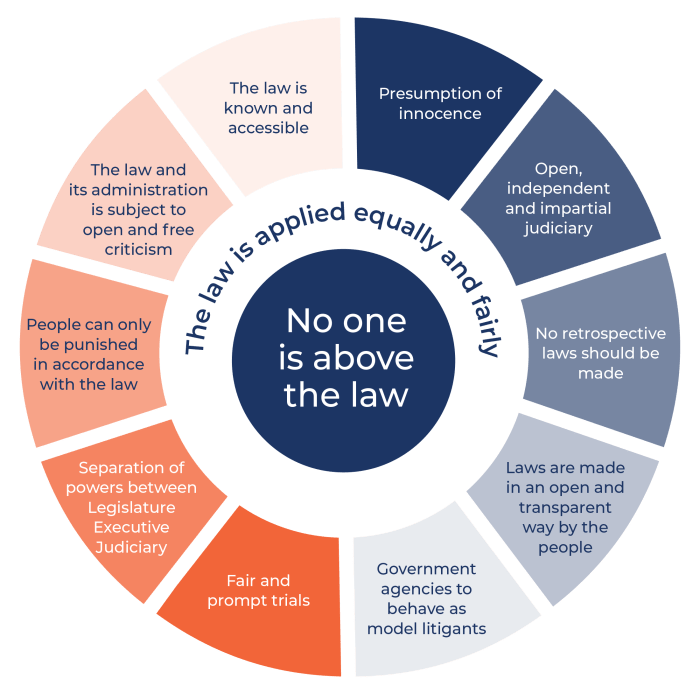
What is bill in law – What is a bill in law? It’s a proposed piece of legislation that, if passed, can become a law affecting our daily lives. Imagine a bill as a blueprint for a new rule, a potential change to an existing one, or a new policy for our society. These bills, crafted by lawmakers, journey through a complex process, starting from an idea and potentially ending up as a law that impacts everyone.
From defining the types of bills and their journey to becoming law, to understanding the language and impact on society, this guide explores the fascinating world of bills and the legislative process.
Definition of a Bill

A bill is a proposed law that is introduced in a legislative body, such as a parliament or congress. It is the first step in the legislative process, and it must be debated, amended, and voted on before it can become law.
Bills are typically introduced by members of the legislature, and they can cover a wide range of topics, from economic policy to social issues. Once a bill is introduced, it is given to a committee for review and consideration. If the committee approves the bill, it is then sent to the full legislature for debate and a vote. If the bill is approved by the legislature, it is then sent to the executive branch, typically the president or governor, for their signature.
Types of Bills, What is bill in law
There are many different types of bills, and they can be categorized based on their purpose or subject matter. Here are some common types of bills:
- Legislative Bills: These bills propose new laws or changes to existing laws. They are the most common type of bill, and they can cover a wide range of topics.
- Financial Bills: These bills deal with the government’s budget, spending, and taxation. They are typically introduced by the executive branch, but they must be approved by the legislature.
- Appropriations Bills: These bills authorize the spending of public funds. They are often passed annually, and they specify how much money the government can spend on different programs and projects.
- Authorization Bills: These bills establish or modify government programs or agencies. They are often passed before appropriations bills, and they set the framework for how the government will operate.
Bill vs. Law
A bill is a proposed law, while a law is a rule that has been formally enacted by a legislative body. A bill becomes a law after it has been approved by the legislature and signed into law by the executive branch.
There are some key differences between a bill and a law:
- A bill is a proposal, while a law is a binding rule.
- A bill can be amended or rejected, while a law is generally considered to be final.
- A bill is not enforceable until it becomes law, while a law is legally binding.
The Role of Public Engagement: What Is Bill In Law

In a democratic society, the legislative process is not a closed-door affair. Citizens have a vital role to play in shaping the laws that govern them. Public engagement in the legislative process ensures that the laws reflect the needs and values of the people they are intended to serve.
Citizen Participation in the Legislative Process
Public engagement in the legislative process can take various forms. Citizens can participate in the legislative process by:
- Contacting their elected representatives: This can be done through phone calls, emails, or letters. Citizens can express their views on specific bills, request meetings with their representatives, or share their personal experiences related to the issue at hand.
- Attending public hearings: Public hearings are opportunities for citizens to provide testimony and express their views on proposed bills. These hearings are often held by legislative committees, and they allow citizens to directly engage with lawmakers and other stakeholders.
- Joining advocacy groups: Advocacy groups are organizations that work to influence public policy. These groups can provide information about specific bills, organize protests or rallies, and mobilize citizens to contact their representatives.
- Participating in online platforms: Many online platforms allow citizens to engage in discussions about legislative issues, sign petitions, and share their views with others. These platforms can help to amplify citizen voices and raise awareness about important bills.
The Importance of Public Awareness and Understanding of Bills
Public awareness and understanding of bills are crucial for effective public engagement. When citizens are informed about the contents of a bill and its potential impact, they are better equipped to advocate for or against it.
“An informed citizenry is essential to a functioning democracy.” – John F. Kennedy
Lack of public awareness can lead to bills being passed without adequate consideration of their potential consequences. It is essential for citizens to be informed about the bills being debated and to understand how they may affect their lives and communities.
Final Summary

The journey of a bill is a testament to the democratic process, involving input from citizens, debate among lawmakers, and ultimately, the possibility of shaping our future. Understanding the process, the language, and the potential impact of bills empowers us to engage in this vital aspect of our society.
Common Queries
What is the difference between a bill and a law?
A bill is a proposed piece of legislation, while a law is a bill that has been passed by the legislature and signed into effect by the executive branch.
How can I find out about bills being considered in my state or country?
Most legislative bodies have websites that provide information on bills, including their status, text, and related documents. You can also contact your elected officials or search for legislative databases online.
What are some examples of famous bills that have had a significant impact on society?
Examples include the Civil Rights Act of 1964, the Clean Air Act, and the Affordable Care Act, which have had profound effects on various aspects of American society.




